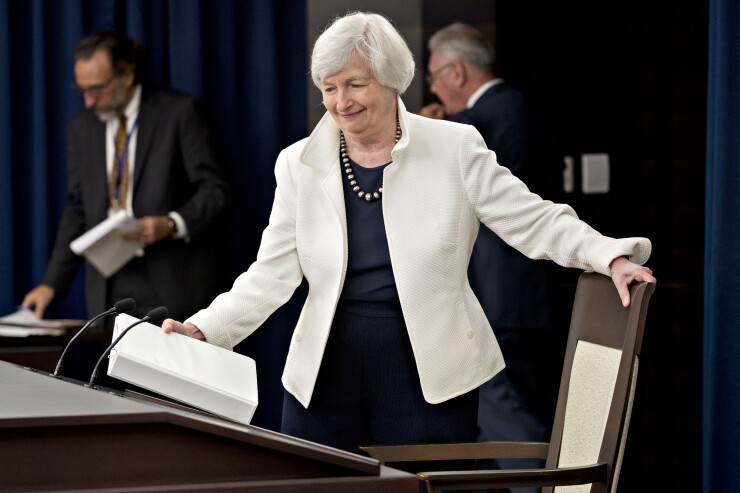Treasury Secretary Janet Yellen needs to take action to protect tax incentives from the impact of a new global tax rate regime set to take effect in 2023, tax-exempt bond and low-income housing advocates said in a letter sent Tuesday.
“In consultation with our investor communities, we found that this agreement could have a much more dramatic impact than likely expected on investments in community development,” said the

Signed by 136 countries last October, the 15% minimum global tax agreement is an effort to make it more difficult for major multinational companies to pay low tax rates. The so-called Pillar II agreement creates a “pop-up tax” that allows other countries to bring a company’s tax rate up to 15% if the rate falls below that in any of its jurisdictions.
In the U.S., many companies use tax-exempt interest and various tax credits to bring their rates below 15% — a move that
U.S. companies that would be affected by the new rule claim about 70% of the incentive tax credits and 80% of the tax-exempt interest reported by all companies, according to a group of nonprofit and business organizations, including the Securities Industry and Financial Markets Association, which sent a
It’s not the first time the tax exemption and other credits have been caught in the crosshairs of a new tax regime. Most recently, a
Congress in the past has opted to exclude the incentives from the calculation of a minimum tax, as seen with the corporate alternative minimum tax or the proposed Base Erosion and Anti-Abuse tax clarifications.
"Reversing that history now would have disastrous effects on these catalytic financing mechanisms beginning immediately, as major investors in these projects could be forced to significantly alter their investments past, present, and future regardless of the Pillar II implementation timeline," the groups said. "At a time when costs are rising and low-income families and communities are being hit the hardest, we cannot afford to lose these critical tools."
The letter outlines the potential impact on low-income and poor rural communities by dampening interest in the low-income housing tax credit and the New Market tax credit, and warns that lack of investment in tax-exempt bonds would raise state and local governments’ borrowing costs and would also hurt job development.
“Forced to make tough decisions on high interest borrowing, governments will be required to raise taxes, fees, and other costs to citizens, thus significantly slowing economic growth – particularly detrimental in light of the current economic struggles in our country," the groups warned.
President Joe Biden seemed to acknowledge the potential conflict by proposing a fix in his FY23 budget, though the mechanism lacks details.
“We appreciate the Administration acknowledging this major issue in the FY2023 budget request and demonstrating the desire to work to protect these financing tools,” the letter said. “That said, recognizing the enormity of the problem, we respectfully ask that you work with the OECD now to prevent an unintended and unprecedented consequence that would alter the landscape of U.S. tax incentives. We stand ready to work with you in any way to ensure the continued success of these vital programs.”





